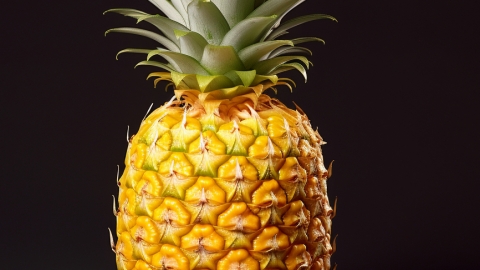Can pineapple and coconut be eaten together?
Generally speaking, pineapple and coconut can be eaten together, but it is not recommended to consume them in large quantities. The detailed analysis is as follows:

Pineapple flesh is sweet and tangy with abundant juice, containing vitamin C, bromelain, and other components, offering a fresh and refreshing taste. Coconut flesh is soft, glutinous, and sweet, while coconut water is mildly sweet and thirst-quenching, rich in carbohydrates, potassium, and various amino acids. Their textures and flavors can complement each other—combining tartness and sweetness, refreshment and soft chewiness—enriching the eating experience. Moreover, their nutritional components do not conflict; consuming them together provides more diverse nutrients. For example, vitamin C can be obtained from pineapple, while potassium can be supplemented from coconut. They are suitable as a daily fruit combination or used in salads, beverages, and other preparations to meet various dietary needs.
When consuming, note that pineapple should be soaked in salt water for a period of time to reduce irritation to the oral mucosa. Coconut has a relatively high sugar content, so intake should be moderated. Individuals allergic to pineapple or coconut should avoid consumption to prevent discomfort such as oral tingling or rashes. Those with weak gastrointestinal function should eat only small amounts to avoid bloating or diarrhea caused by excessive intake of raw and cold fruits, thus ensuring comfortable digestion.




